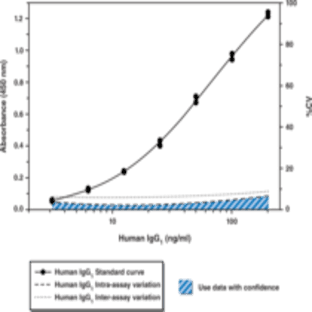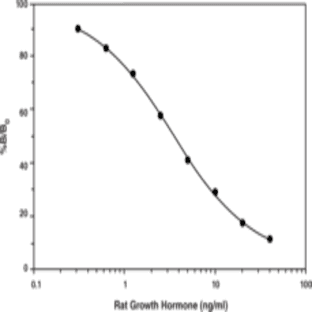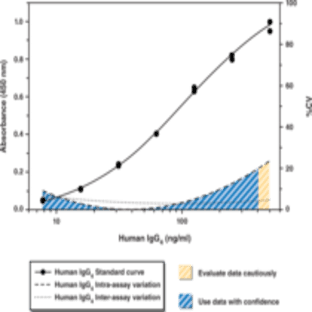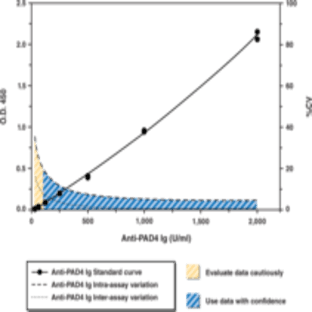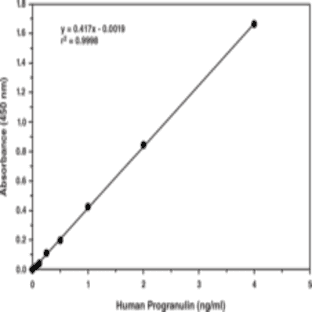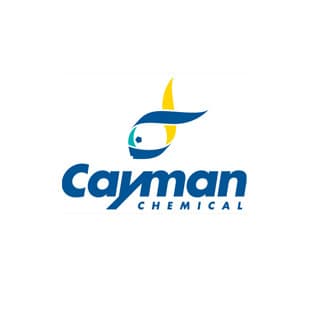
Supplier:
Cayman Chemical CompanyCat no: 10004380
PAF Acetylhydrolase Inhibitor Screening Assay Kit
Prices direct from Cayman Chemical Company
Quick response times
Exclusive Biosave savings/discounts
SPECIFICATIONS
Catalog Number
10004380
Form
1 ea
P Type
Assay Kits|Phospholipase|Phospholipids
Weight
0
Storage Temp
-20
Shipping Temp
-20
Additional Info
Platelet-activating factor (PAF) is a biologically active phospholipid synthesized by a variety of stimulated cells. The biological effects of PAF include activation of platelets, polymorphonuclear leukocytes, monocytes, and macrophages. PAF also increases vascular permeability, decreases cardiac output, induces hypotension, and stimulates uterine contraction. PAF has been implicated in pathological processes, such as inflammation and allergy. PAF is converted to the biologically inactive lyso-PAF by the enzyme PAF acetylhydrolase (PAF-AH). PAF-AHs are located intra- and extra-cellularly (e.g., cytosolic and plasma). Plasma PAF-AH is highly selective for phospholipids with very short acyl groups at the sn-2 position and is associated with lipoproteins. Recently, plasma PAF-AH has been linked to atherosclerosis and may be a positive risk factor for coronary heart disease in humans. The Cayman Chemical PAF Acetylhydrolase Inhibitor Screening Assay uses 2-thio PAF as a substrate for PAF-AH. Upon hydrolysis of the acetyl thioester bond at the sn-2 position by PAF-AH, free thiols are detected using 5,5'-dithio-bis-(2-nitrobenzoic acid) (DTNB; Ellman's reagent). The PAF Acetylhydrolase Inhibitor Screening assay includes human plasma PAF-AH and is a time saving tool for screening vast numbers of inhibitors.
Applications
ELISA, IF, IP, WB
Hosts
Rabbit
Applications
ELISA, IP, WB
Hosts
Rabbit
Latest promotions
Spend less time on DNA cleanup so you can do more science. The MSB Spin PCRapace is the fastest way to purify your DNA from PCR, restriction digestion, and...
New brilliant antibodies, and new lower prices!For flow cytometry reagents in general, \"bright is better.\" The violet-excitable BD Horizon™ BV421 and...
As an incentive to qualify our BSA, we are offering a 20% discount when you purchase your first 100g, 500g or 1000g of any grade of Bovine Serum Albumin....
It is not every day that you are given something for nothing. We are giving away additional spectrophotometer software.Cecil Instruments have enhanced the...
Did your supplier increase the price of Fetal Bovine Serum? Did they substitute the US Origin with USDA? Well say no more! Innovative Research is still...
For the past decade scientists have extensively used ATS secondary toxin conjugates to make their own targeted toxins for in vitro use.The ability to combine...
We're so sure that you'll prefer Cayman Assay kits over your present brand that we're willing to give you a free assay kit to prove it!
10% Discount on 2 Rabbit Polyclonal Antibody Service. With over 20 years experience, SDIX has developed into the premier US custom antibody producer,...
Bulk Cytokines with Custom Vialing.20 - 50% off cytokines, growth factors, chemokines and more...For a limited time Cell Sciences is offering substantial...
Jenway’s 73 series spectrophotometer range provides four models with a narrow spectral bandwidth of 5nm and an absorbance range of –0.3 to 2.5A,...
Are you planning to have a customised antibody made for your research?Since 2000, Everest has been producing a catalog containing thousands of affinity...
Top suppliers
United States Biological
230753 products
Carl Zeiss Microscopy
27 products
Promega Corporation
11 products
Panasonic Healthcare Company
5 products
Life Technologies
1 products
Nikon Instruments Europe
11 products
Olympus Europa Holding GmbH
3 products
Leica Microsystems, Inc.
10 products
GE Healthcare Life Sciences
2 products
Tecan Trading AG
19 products
Beckman Coulter, Inc.
1 products
AB SCIEX
3 products
BD (Becton, Dickinson and Company)
1 products
RANDOX TOXICOLOGY
5 products
Randox Food Diagnostics
6 products










